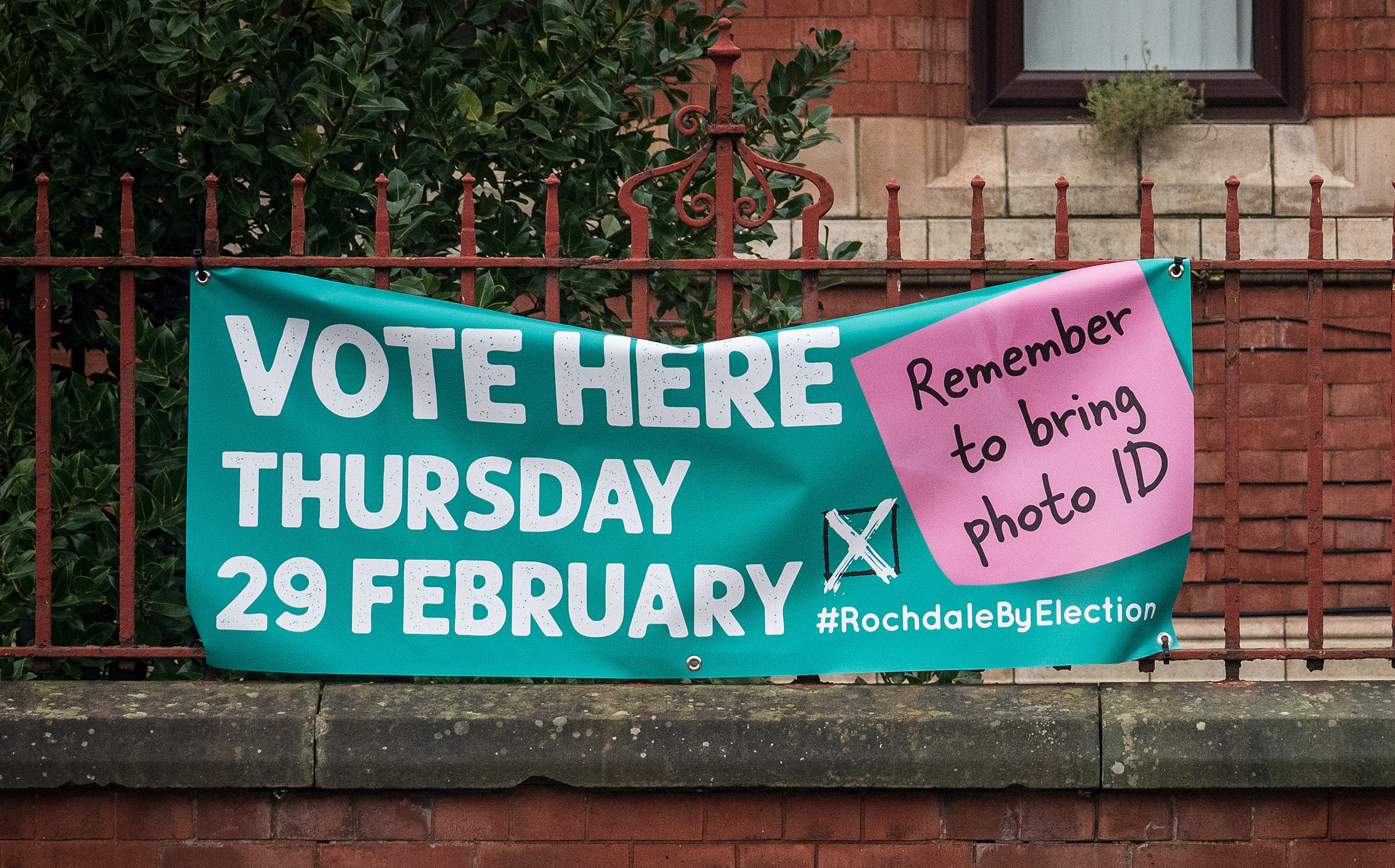What is voter ID and why is it controversial?
Everything you need to know about the controversial new election rule

Voters have been required to bring photographic identification for certain elections in the UK since May 2023.
This came after parliament passed the Elections Act in April 2022, enacting a recommendation the Electoral Commission first made in 2014.
Voter ID is now required at by-elections and recall petitions, general elections, local elections and referendums in England, and Police and Crime Commissioner elections in England and Wales.
The new rules do not apply to Scottish Parliament, Welsh Senedd, or council elections taking place in Scotland or Wales.
The new ID laws have already been in place in many local elections and by-elections since being implemented. But 2024 will be the first year they are in place for a London mayoral election – and possibly a general election.
Sadiq Khan has criticised the new voter ID rules ahead of May’s London mayoral election in an article for The Independent.
“New rules making it compulsory to have an approved form of ID, a deliberate attempt to reduce turnout, also puts the election on a knife-edge,” the London Mayor writes.
“At the last London mayoral election, in 2021, I was less than 5 per cent ahead after the first round of voting. These are the finer margins we’ll now be dealing with.”
Here’s everything you need to know about voter ID ahead of upcoming elections:
What ID do I need to vote?
There are many different forms of ID that will be accepted at the polling station. It must be photographic ID - meaning a bank card is not valid, for instance.
Accepted forms of ID include:
- Passport issued by the UK, any of the Channel Islands, the Isle of Man, a British Overseas Territory, an EEA state, or a Commonwealth country
- A photo driving licence issued by the UK, any of the Channel Islands, the Isle of Man, or an EEA state (including a provisional driving licence)
- A Blue Badge
- Older Person’s Bus Pass
- Disabled Person’s Bus Pass
- Freedom Pass
- Identity card bearing the Proof of Age Standards Scheme hologram (a PASS card)
- Biometric immigration document
- Ministry of Defence Form 90 (Defence Identity Card)
- National identity card issued by an EEA state
- Anonymous Elector’s Document
You can use an out-of-date photo ID provided it still looks like you. A full list of accepted forms of ID can be found on the Electoral Commission website.
What if I don’t have voter ID?
If you do not have any of the accepted forms of photo ID, you are able to apply for a Voter Authority Certificate. It’s free to apply for, and will be accepted at the polling station when you want to vote.
You can apply for a Voter Authority Certificate on the Electoral Commission website. It is free and they do not expire, although it is recommended you reapply every 10 years to ensure your likeness remains similar to the ID.
If you don’t bring an accepted form of photo ID to the polling station, you will be turned away.
The London mayoral elections take place on 2 May 2024. For this election, the deadline to apply for a Voter Authority Certificate is 5pm on 24 April 2024.
What are the issues around voter ID?
The government sought to pass the new voter ID laws to crack down on election fraud, specifically ‘personation’. This is a criminal offence, where a person votes at an election pretending to be someone they’re not.
Writing after they were passed, then-levelling up minister Kemi Badenoch said the new law “means we can eliminate election fraud and make elections more inclusive, ensuring that everyone eligible to vote will continue to have the opportunity to do so.”
However, critics of the voter ID rules have pointed out that cases of electoral fraud are rare in the UK, and personation even more so. Latest data from the Electoral Commission shows that, between 2018 and 2022, only 11 of the 1,386 alleged cases of electoral fraud resulted in convictions.
There are also concerns that voter ID laws can disproportionately affect marginalised communities’ ability to vote.
In 2021, government-commissioned research found that those with limiting disabilities, the unemployed, people without qualifications, and those who had never voted before were among the least likely to hold a valid form of photo ID.
Further research presented to the House of Commons found that the changes may result in 1.1 million fewer people voting in the next general election.
“As there is no justification for this threat to the right to vote, it feels like an opportunistic attack on the rights of some of the most marginalised people in society,” said a spokesperson for the Liberty human rights advocacy group in 2021.
“A classic example of ruling through division and distrust.”
The government’s choice to accept forms of local travel photo ID for older people, but not younger people, has also come under scrutiny. Neither the 16-25 or 26-30 railcard are accepted.
Labour MP Nadia Whittome said: “The new voter ID requirement will stop many young people from voting – and it seems that is by design, not by accident.
“The government has given older voters, who are more likely to vote Conservative, a large range of acceptable forms of ID, while providing very few options for young people.
Levelling up minister Dehenna Davison has defended the decision, saying: “Young person’s railcards are generally offered in both digital and hard copy formats.
“The government did not specifically include digital format documents for the roll-out of the policy, in order to support its effective delivery.”
Subscribe to Independent Premium to bookmark this article
Want to bookmark your favourite articles and stories to read or reference later? Start your Independent Premium subscription today.

Join our commenting forum
Join thought-provoking conversations, follow other Independent readers and see their replies